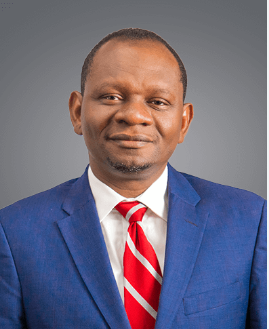The Executive Director of the National Primary Health Care Development Agency, Dr Muyi Aina, has noted that several women in the country still die from complications related to pregnancy and childbirth, and too many children fail to reach their fifth birthday due to preventable diseases.
The Executive Director gave the comments on Monday in Abuja while speaking at the ongoing two-day engagement meeting on vaccination and maternal and child health with religious leaders from northern Nigeria organised by the Sultan Foundation for Peace and Development with support from NPHCDA.
The NPHCDA boss also disclosed that Nigerai has a total of 70 cases of circulating variant poliovirus type 2 from 46 Local Government Areas across 14 northern states.
He noted that in the country, on a daily basis, there are about 2,300 children under five years old and 145 women of childbearing age who dies. He noted that most of the deaths were recorded in the northern part of the country.
He noted there was a present spread of ntense transmission of the circulating variant poliovirus type 2, with a total of 70 cVPV2 from 46 LGAs across 14 Northern states. He explained that the trnassiion has been made possible because of the low routine immunisation, and refusal of vaccines during polio campaigns.
He noted that the attitude must change, noting that the agency must ensure that every woman has access to antenatal care, that trained and skilled midwives deliver every pregnancy, and that every child completes their routine Immunisation according to what has been agreed upon nationally. He noted that it was important that all individuals in the county get vaccinated when teams visit their homes for vaccination.
He noted that the the stakeholders must work collaboratively to ensure that all the people who need vaccinations are given them when they need them. He noted the religious leaders in the country have critical roles to play in the actualization of the the health commitment to rural communities in the country.
He explained that the county and its stakeholders must act to break down barriers to care, ensure equitable access to services, and build trust between healthcare providers and the communities they serve. He noted that the collective efforts could create an environment where every Nigerian child is immunised and every Nigerian mother receives the care she deserves.
He conclusively thanked His Eminence, the Sultan of Sokoto, Alhaji Muhammad Sa’ad Abubakar III, and His Eminence, Most Reverend Daniel Okoh, for their efforts in always bringing individual, especially traditional and religious leaders, to support immunization and other Primary Health Care programmes. He further appreciated the Sultan Foundation and other partners for their unwavering support and dedication to improving health outcomes in Nigeria.
The Country Representative of the World Health Organisation, Dr Walter Mulombo, in his goodwill message, noted that the partnership was important in achieving the broader goal of universal health coverage.
He explained that the partnership is also aligned with the primary healthcare approach, the bedrock of Nigeria’s Health Policy, and a whole-of-society approach to health that aims to ensure the highest possible level of health and well-being equitably distributed across all communities.
While speaking, the Sultan of Sokoto, Saad Abubakar, noted that religious leaders are needed to promote development, peace, and security. He elaborated that the delivery of health and security were essential for the development of the country. He continued by noting that the Sultan Foundation’s work exemplifies the power of collaboration.
According to him, it was established to promote sustainable development and social cohesion; the foundation has made significant strides in addressing health, education, and economic empowerment. He noted that through partnering with organisations like UNICEF, Bill Gates Foundation, and other stakeholders, the foundation demonstrates the potential for collective impact.




